Ep. 46: Alex McIntosh – CEO & co-founder of Thrive Natural Care ||
.
On episode #46 we welcome Alex McIntosh, CEO & co-founder of Thrive natural care. Thrive designs and sells high-performance skincare, powered by regenerative plants. Since 2013, Thrive’s team of American and Costa Rican entrepreneurs, farmers and scientists have produced new-to-market botanicals for the company’s products by means of an inspiring regenerative farming model that helps restore degraded ecosystems and communities. Thrive’s vision and 500% growth over the past year has attracted retail partners such as Whole Foods and Amazon, national media such as Travel+Leisure and Esquire, and investors from Clorox, Nestlé, Unilever, venture capital and the NBA.
.
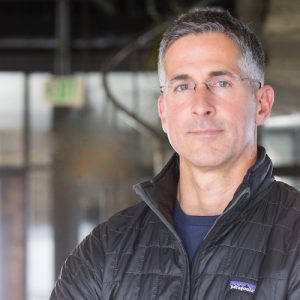 Prior to Thrive, McIntosh was the founding Director of Sustainability & Corporate Citizenship at Nestlé Waters North America, the $4B division of the world’s largest consumer water company. At Nestlé Waters, Alex developed the vision and strategic plan, and provided hands-on leadership to build the corporation’s first sustainability program from the ground up during a time of intense social scrutiny. Prior to Nestlé, Alex was Director of Philanthropy at The Nature Conservancy, where he helped raise a record $75MM in private capital for two of the largest watershed conservation projects in the organization’s history.
Prior to Thrive, McIntosh was the founding Director of Sustainability & Corporate Citizenship at Nestlé Waters North America, the $4B division of the world’s largest consumer water company. At Nestlé Waters, Alex developed the vision and strategic plan, and provided hands-on leadership to build the corporation’s first sustainability program from the ground up during a time of intense social scrutiny. Prior to Nestlé, Alex was Director of Philanthropy at The Nature Conservancy, where he helped raise a record $75MM in private capital for two of the largest watershed conservation projects in the organization’s history.
.
Male grooming market is booming global. In fact, from the $15.5 billion in worldwide sales in 2012 – the Male grooming market is estimated to be worth about $29.14 billion U.S. dollars by 2024. In our 45 minute discussion on Sourcing Matters.show we explore how personal care, especially for men, is a category yet to mesh with modern consumer interest and demands. The blue goop we shave with will increasingly be a thing of the past. McIntosh and team see this horizon when this macro trend leaning towards safer and cleaner ingredients will mesh with the growth projections in personal care. This is a sound business set on leaving this place better than they found it.


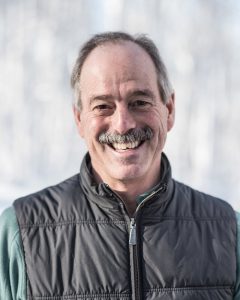 They’re surely good eating, but oysters represent so much good to their surrounds, the shared environments, and the communities they support. You see, each adult oyster filters 50 gallons of water daily, they restore keystone marine ecosystems, and they build protective reefs around susceptible coastal communities – protecting us from storm surge and severe weather events. In this 45 minute discussion Bill Mook goes into details describing why Oysters are so important to the stability of seas, and to our planet. As you’ll hear, Mook has implemented bleeding-edge R&D in his hatchery that is second to none. Innovations include development of methods for overwintering seed out of the water; a tidal powered nursery system; a vessel and gear for mechanizing the use of OysterGro™ cages; and a unique, energy efficient, and highly productive system for growing the micro-algae we use for food in the hatchery. Effectively his approach to “brew” feed for Oysters, or for other animals for that matter, sets to be revolutionary.
They’re surely good eating, but oysters represent so much good to their surrounds, the shared environments, and the communities they support. You see, each adult oyster filters 50 gallons of water daily, they restore keystone marine ecosystems, and they build protective reefs around susceptible coastal communities – protecting us from storm surge and severe weather events. In this 45 minute discussion Bill Mook goes into details describing why Oysters are so important to the stability of seas, and to our planet. As you’ll hear, Mook has implemented bleeding-edge R&D in his hatchery that is second to none. Innovations include development of methods for overwintering seed out of the water; a tidal powered nursery system; a vessel and gear for mechanizing the use of OysterGro™ cages; and a unique, energy efficient, and highly productive system for growing the micro-algae we use for food in the hatchery. Effectively his approach to “brew” feed for Oysters, or for other animals for that matter, sets to be revolutionary.
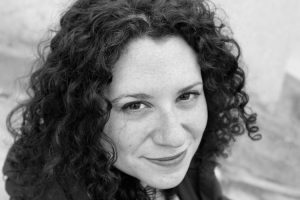 Bringing 24,000 concert goers to Hartford in September- the 2018 Farm Aid event was a smashing success. Featuring Farm Aid founder Willie Nelson, John Mellencamp, Dave Matthews, Neil Young, Sturgill Simpson and many more – this gathering amplifies the needs, and helps define current state of farming in this county. Alicia Harvie and Jennifer Harvie describe their moving experiences during both the main concert event and the field visits and pavilion days leading up to the top billing.
Bringing 24,000 concert goers to Hartford in September- the 2018 Farm Aid event was a smashing success. Featuring Farm Aid founder Willie Nelson, John Mellencamp, Dave Matthews, Neil Young, Sturgill Simpson and many more – this gathering amplifies the needs, and helps define current state of farming in this county. Alicia Harvie and Jennifer Harvie describe their moving experiences during both the main concert event and the field visits and pavilion days leading up to the top billing.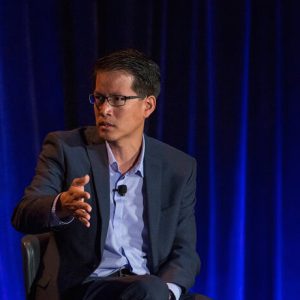 Until 2014, Stacey served as the managing director of the health care practice at
Until 2014, Stacey served as the managing director of the health care practice at 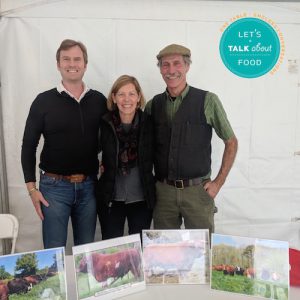 Sourcing Matters ep. 41: “Systems Thinking in food production”– live recorded at the “Let’s talk about Food” festival at Harvard University – looks at harmonizing with more natural systems, and evaluates better management practice that could be used to produce our food in the future. Host Aaron Niederhelman will guide the discussion to cover diverse topics. Not the least of which a process that’s being used to sequester carbon through reengaging the natural system of our living soils – on the hoof. Additionally, one of the most under valued workforce in food production – pollinators. And, it’ll be a conversation that clearly detail how what you eat is the most impactful vote you have to positively benefit your health and that of your family, to increase global stability and to mitigate climate change. So, If you’re an environmentalist, a humanitarian, a patriot, a doctor, or even that you just want to look and feel better – tune-in and learn how your grocery budget can change the world.
Sourcing Matters ep. 41: “Systems Thinking in food production”– live recorded at the “Let’s talk about Food” festival at Harvard University – looks at harmonizing with more natural systems, and evaluates better management practice that could be used to produce our food in the future. Host Aaron Niederhelman will guide the discussion to cover diverse topics. Not the least of which a process that’s being used to sequester carbon through reengaging the natural system of our living soils – on the hoof. Additionally, one of the most under valued workforce in food production – pollinators. And, it’ll be a conversation that clearly detail how what you eat is the most impactful vote you have to positively benefit your health and that of your family, to increase global stability and to mitigate climate change. So, If you’re an environmentalist, a humanitarian, a patriot, a doctor, or even that you just want to look and feel better – tune-in and learn how your grocery budget can change the world.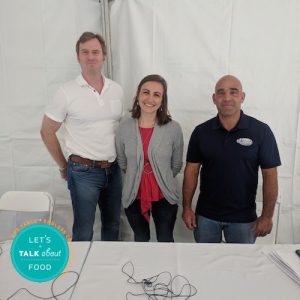 Sourcing Matters ep.
Sourcing Matters ep. 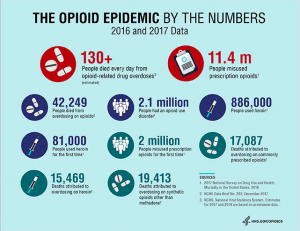
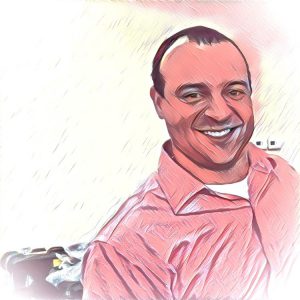 Last, Scott Murphy serves as President of Veterans for Safe Access to Compassionate Care. An organization fighting for smart, just pain management programs for their brethren; for every community, and for every family as a proactive plan against this epidemic.
Last, Scott Murphy serves as President of Veterans for Safe Access to Compassionate Care. An organization fighting for smart, just pain management programs for their brethren; for every community, and for every family as a proactive plan against this epidemic.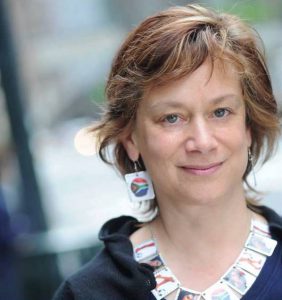 First, in “Cows Save the Planet” – she takes a look at restoring large scale ecological systems through holistic planned grazing of herbivores. Basically, by keeping animals on the parterre lands, in natural environments we evolve our management practice to actually harmonize with natural order. This kick starts natural environments that can have vast net positive impact on the climate. Soil everywhere becomes a thriving carbon bank – by first stabilizing natural exchanges, then sucking-up excess carbon we spew into the air. Judith shares her thoughts on the current state of affairs with this approach & mindset, and some new discoveries since publishing the book.
First, in “Cows Save the Planet” – she takes a look at restoring large scale ecological systems through holistic planned grazing of herbivores. Basically, by keeping animals on the parterre lands, in natural environments we evolve our management practice to actually harmonize with natural order. This kick starts natural environments that can have vast net positive impact on the climate. Soil everywhere becomes a thriving carbon bank – by first stabilizing natural exchanges, then sucking-up excess carbon we spew into the air. Judith shares her thoughts on the current state of affairs with this approach & mindset, and some new discoveries since publishing the book.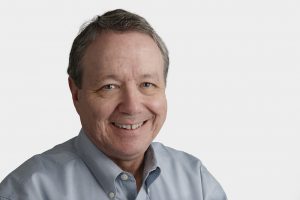 Previous to beginning his work at the CLF in 2011, Martin was the Executive Director of the PEW Commission on Industrial Farm Animal Production. Martin managed a comprehensive two-year, $3.6 million study that led to the publication of eight technical reports and a final 122-page report on the public health, environmental, animal welfare and rural community impacts of our conventional methods for producing meat, dairy and eggs. The report – Putting Meat on the Table: Industrial Farm Animal Production in America defined a seminal moment of awareness in US production, food systems and supporting a shared one-health. It’s been a significant part of our realization that the approach we’re using to raise animals has broad reaching human and public health impact that needs immediate attention.
Previous to beginning his work at the CLF in 2011, Martin was the Executive Director of the PEW Commission on Industrial Farm Animal Production. Martin managed a comprehensive two-year, $3.6 million study that led to the publication of eight technical reports and a final 122-page report on the public health, environmental, animal welfare and rural community impacts of our conventional methods for producing meat, dairy and eggs. The report – Putting Meat on the Table: Industrial Farm Animal Production in America defined a seminal moment of awareness in US production, food systems and supporting a shared one-health. It’s been a significant part of our realization that the approach we’re using to raise animals has broad reaching human and public health impact that needs immediate attention.